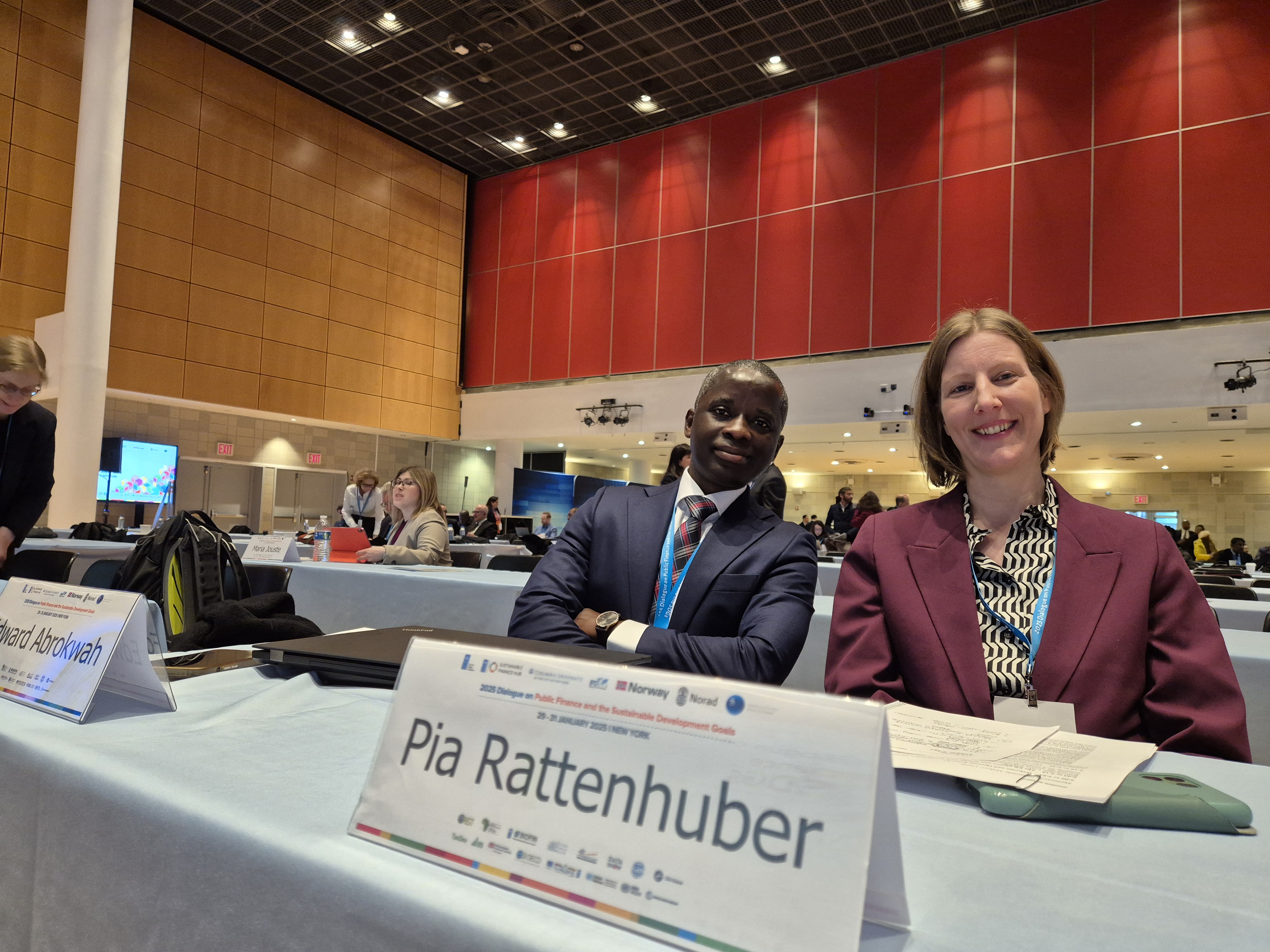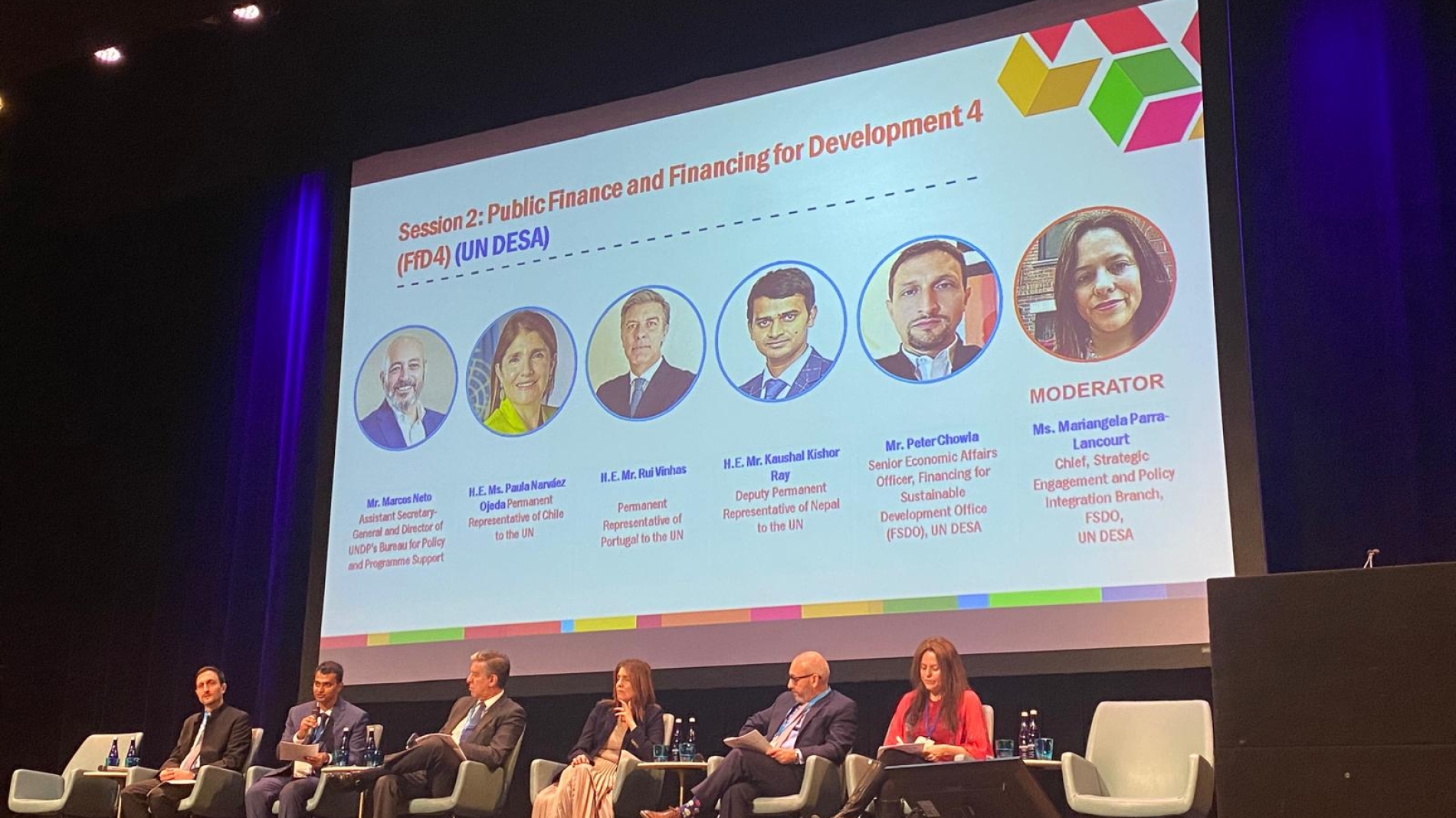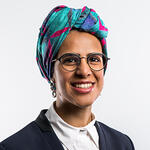Blog
Walking the road to the Fourth Financing for Development Conference and beyond
Last week, we attended the 2025 UNDP Dialogue on Public Finance and SDGs, where we explored the most pressing topics regarding public financing for meeting the Sustainable Development Goals (SDGs) in Global South countries. The Zero Draft of the 4th Financing for Development Conference (FFD4) Outcome Document, our future development agenda for the next 10 years, was a constant presence, serving both as a guide and a reminder of the work ahead.
Domestic revenue mobilization remains a key challenge
There was a consensus in the room that domestic revenue mobilization was the most sustainable form of finance for countries. However, how to effectively tax citizens and companies and by how much remains a key challenge for Global South countries. Domestic revenue mobilization, public spending, and the SDGs are interrelated issues, with sovereign debt standing in the middle of it all.
A decade ago, the Addis Ababa Action Agenda set the stage for these discussions by emphasizing taxation—both domestic and international. What we observed now, both in the Zero Draft and at the Dialogue, is a welcome shift towards a comprehensive approach to government spending and revenue.

Two sides of the same coin – government spending and revenue
We advocate for a ‘whole-system approach’ to solve the challenges ahead. Focusing solely on revenue or spending is not enough. The Zero Draft mentions ‘expenditure’ four times, with two references to ‘tax expenditure’, which often refers to tax breaks for large companies. We need to ensure that expenditures benefiting citizens and society are part of the tax conversation.
For policies to be sustainable and beneficial for citizens and their governments, government revenues must be reinvested into meaningful expenditures that support societies’ well-being, bolstering health, education, and infrastructure. We must enable societies to discuss how the mobilized revenue should be spent. Moving the conversation from 'revenue' to a 'public finance' perspective has just started.
How to make it happen
How do we build these 'whole-system approach' fiscal policies? How do we build efficient and fair tax systems alongside expenditure policies that promote citizens’ social protection? One key factor will be meaningful evidence on which citizens and governments can base their decisions on.
On the final day of the Dialogue, we hosted a session on data, statistics, and tools for development-focused public finance. The panel drew from a diverse set of experiences from colleagues working in and with governments in the Global South. The panelists identified and illustrated specific, real-life examples of how different types of data coming together with the right methods can provide critical evidence for decision-makers to bring FFD4 to life.

Data, data, data
A game changer for evidence in the data sphere is microdata collected by tax administrations. This administrative tax microdata provides insights into employment, wages, business performance, and investments. Governments in Global South countries sit on incredible amounts of data that could be leveraged to design effective tax and social protection policies.
New insights can also be gathered by linking data from tax authorities with other government agencies beyond tax policy, such as welfare and labour market dynamics. More broadly, drawing on different data sources will boost the potential of any single data set. However, a functional data ecosystem, as outlined in the Medellín Framework, requires data collectors and users to collaborate.
Incorporating data and discussions about its use from the outset is essential to this process. This approach is vital not only for developing indicators for monitoring but also for assessing the effectiveness of policies. For example, our understanding of how tax policies affect men and women differently is still limited, primarily due to the lack of information on taxpayer gender in many data sources.
While the zero draft reflects data in various ways, it falls short of acknowledging the interrelated nature of data itself and data as part of the evidence-generation process.
Methods, modelling, and capacities
Data needs to be harnessed with the right methods and analytical tools for aligning fiscal systems with sustainable development. We discussed evidence crucial for advancing FfD4, focusing on how tax and spending policies affect households, individuals, and specific subgroups like children, women, and the elderly. Creating an evidence-base for how a potential policy might affect people must be part of policy design from the start.
Tax-benefit microsimulation models, such as those developed and maintained in UNU-WIDER’s SOUTHMOD project and its country partners or by TaxDev and its partners, are highly suitable tools for that purpose. They help to identify whether existing social protection and tax schemes serve the most vulnerable and how they can be tweaked to deliver more. Equally, they can shed light on specific tax policy questions, such as who is affected by a small business tax, and could a tax credit encourage more women to join the formal sector?
Methods and analytical tools are largely absent from the Zero Draft. While specific methods might not be necessary in such a document, Global South countries need this missing piece of the puzzle to effectively put the commitments of the forthcoming Outcome Document into action.
UNU-WIDER is well-positioned to support Global South countries implement the provisions of the Outcome Document being prepared for the FfD4 Conference this July. We stand ready to develop and implement with partners in the Global South methods and tools to improve their fiscal systems, addressing both taxes and expenditures, and realize the commitments of the 2025 Financing for Development Agenda.
Pia Rattenhuber is a Research Fellow at UNU-WIDER.
Marie-France Boucher is an Associate Communications Officer at UNU-WIDER.
Amina Ebrahim is a Research Fellow at UNU-WIDER.
The views expressed in this piece are those of the author(s), and do not necessarily reflect the views of the Institute or the United Nations University, nor the programme/project donors.
 Join the network
Join the network






